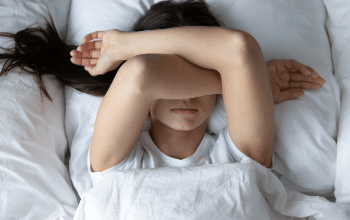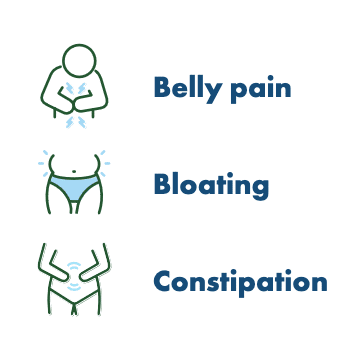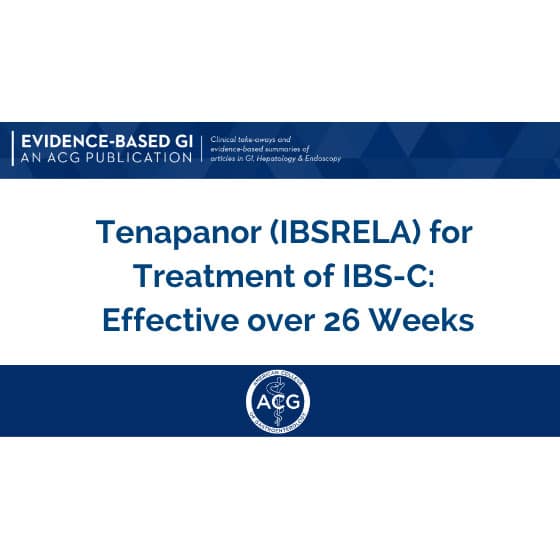Is IBS Keeping You Up At Night?
Is irritable bowel syndrome (IBS) keeping you up at night?
Research suggests that IBS is associated with sleep disturbances and those with IBS may have trouble falling asleep or staying asleep.
Let’s unpack the reasons why IBS may be disturbing your sleep and discuss what you can do about it!
IBS symptoms can cause poor sleep
If you’ve ever tried to go to bed during a symptom flare, you likely know what it can do to your sleep.
Abdominal pain can make it impossible to fall asleep and even if you do manage to drift off, you could find yourself waking up and running to the bathroom.
While IBS symptoms are part of the reason for sleep disturbances, researchers are starting to learn that the cause may be more complex than we think.
Sleep and the microbiome
Did you know that you have trillions of bacteria and other microbes living inside of your body? While it may sound like something out of a science fiction film, your colon (or large intestine) is actually home to a wide variety of microscopic organisms that make up the “intestinal microbiome”.
Researchers are still uncovering all the ways in which the microbiome influences health, and one area of research is the role of the microbiome in sleep.
While we don’t yet know which specific microbes can help support sleep, research suggests that a diverse microbiome is correlated with better sleep. Since IBS may be associated with lower microbial diversity and an altered microbiome, it’s possible that these shifts in the microbiome are leading to poor sleep for those with IBS.
How to sleep better with IBS
Working with your healthcare provider to manage your IBS is a big first step towards better sleep. But you should also take a look at your sleep routine.
While the research on the connection between sleep disturbances and IBS is still emerging, those with IBS should look out for sleep issues. Sleep is essential to our health, so It’s important to be open with your healthcare provider if you’re having trouble sleeping.
Here are a Few Tips to Help Improve Your Sleep
Avoid trigger foods close to bedtime
Journal before going to sleep
Keep all screens (phone, TV, tablet) out of the bedroom
Stay away from caffeine for at least a few hours before bed
Related Resources:
Listen to our
latest Podcast!






